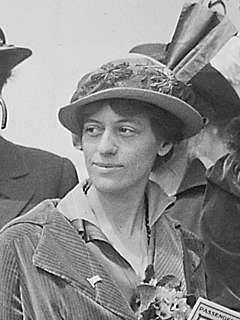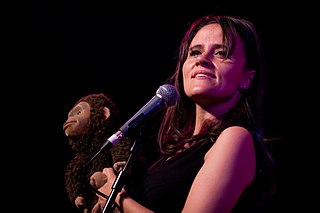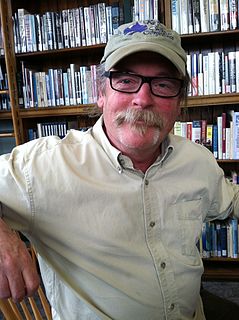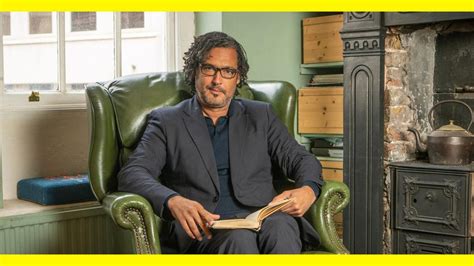Top 1200 Old English Quotes & Sayings - Page 12
Explore popular Old English quotes.
Last updated on April 22, 2025.
English audiences of working people are like an instrument that responds to the player. Thought ripples up and down them, and if in some heart the speaker strikes a dissonance there is a swift answer. Always the voice speaks from gallery or pit, the terrible voice which detaches itself in every English crowd, full of caustic wit, full of irony or, maybe, approval.
What le Carré is so good at is unpicking something very specific about Englishness. That is almost part of why I think he wrote the novel. You can feel le Carré's anger that someone who has had the benefits of an English education and an English upbringing is using that privilege to basically do the worst things imaginable. There is an anger in the book about that.
The biggest issue for me has been the language because I speak so much German now. I've had to focus on my English and find more words to describe what I want to say and also soften my tone. It was quite stiff from 20 years of speaking German, so when I started speaking more English, oh my god, my tongue was like: 'Argh'!
All these people talk so eloquently about getting back to good old-fashioned values. Well, as an old poop I can remember back to when we had those old-fashioned values, and I say let's get back to the good old-fashioned First Amendment of the good old-fashioned Constitution of the United States - and to hell with the censors! Give me knowledge or give me death!
You will hear people say the C-word. Except, it's a regional language: in British English, c - t has much less of an inflammatory sense than it does in North American English. You can hear someone on British TV called "a c - ting monkey" or a man being called a c - t. The particular fascination of profanity is how culturally specific it is and how it evolves.
I acknowledge Mike Leigh and Ken Loach. They are prostlytizers of English socialism preaching to the converted and telling us what we already know. Cinema is best served away from documentary neo-realism. I come from a tradition of post-post-Italian neo-realism in England, where we've produced the best television in the world. But to paraphrase Truffaut, the English have no visual imagination.
I think that if you are sticking to the text, essentially, you're not trying to write your own version of it. I mean, of course, it is your own version of it. And every translator would probably have a different version. But I think that that's what keeps the writers from being individual in English. They may be my English, but I don't think that Ferrante sounds like Levi.
I'd studied English literature and American history, but the English literature, which I thought was going to be helpful to me in an immediate way, was the opposite. So I had to un-think a lot of things and move out of my own head, and I learned a lot. It was like graduate school, but an un-graduate school or an un-school.
Shakespearean words, foreign words, slang and dialect and made-up phrases from kids on the street corner: English has room for them all. And writers - not just literary writers, but popular writers as well - breathe air into English and keep it lively by making it their own, not by adhering to some style manual that gets handed out to college Freshmen in a composition class.
In the ninth and tenth centuries the Vikings invaded Britain from Scandinavia and settled in large numbers. Their language, which we call Old Norse, was at least partly comprehensible to the English, who did not hesitate to take over hundreds of words from it: skirt, window, scrub, sky, give, hit, kick, scatter, scrape, skill, scowl, score, fellow, want, skin, knife, law, happy, ugly, wrong and even the pronouns they and them.
Read a lot. But read as a writer, to see how other writers are doing it. And make your knowledge of literature in English as deep and broad as you can. In workshops, writers are often told to read what is being written now, but if that is all you read, you are limiting yourself. You need to get a good overall sense of English literary history, so you can write out of that knowledge.
From the Latin word "imponere", base of the obsolete English "impone" and translated as "impress" in modern English, Nordic hackers have coined the terms "imponator" (a device that does nothing but impress bystanders, referred to as the "imponator effect") and "imponade" (that "goo" that fills you as you get impressed with something - from "marmelade", often referred as "full of imponade", always ironic).
When we moved to England in 1986, I was ten years old and I didn't know anything about punk or hip hop. The only words I knew in English were 'dance' and 'Michael Jackson.' We got put in a flat in Mitchum, and the council gave us second hand furniture, second hand clothes and a second hand radio that I took to bed with me every night.
The only reason I acted in school was because of the community. I was in the chorus of every play and was never the lead other than one time, but to me it was about the community. I was an English major and my whole goal was to be an English teacher and was lucky enough to get into the playwriting group. The whole experience I had at Brown was eye opening and the most mind-bending experience.
I had the advantage, that I know Swedish. So I had the Swedish book and I had a lot of English translations, and German translations, and I did everything to make the best English translation of August Strindberg's Miss Julie I could. And then, there I went. "Oh! I think she's thinking this, but I think she should say it!" And so on. It's wonderful to do that.
I read everything I could find in English - Twain, Henry James, Hemingway, really everything. And then after a while I started writing shorter pieces in English, and one of them got published in a literary magazine and that's how it got started. After that, graduate school didn't seem very important.
I feel more Irish than English. I feel freer than British, more visceral, with a love of language. Shot through with fire in some way. That's why I resist being appropriated as the current repository of Shakespeare on the planet. That would mean I'm part of the English cultural elite, and I am utterly ill-fitted to be.
Although I write in English, and despite the fact that I'm from America, I consider myself an Armenian writer. The words I use are in English, the surroundings I write about are American, but the soul, which makes me write, is Armenian. This means I am an Armenian writer and deeply love the honor of being a part of the family of Armenian wrtiters.
My favourite film-maker west of the English Channel is not English - but to me doesn't seem American either - David Lynch - a curious American-European film-maker. He has - against odds - achieved what we want to achieve here. He takes great risks with a strong personal voice and adequate funds and space to exercise it. I thought Blue Velvet was a masterpiece.
To be blunt, I feel like lyricism in Spanish is of a different quality than English. You can get really poetic in Spanish, but I feel like if you do that in English, you risk sounding cheesy. In Spanish, it's never that. It's always this deep, passionate, beautiful imagery; it's painted different, a different color.
I try to find a style that matches the book. In the Baroque Cycle, I got infected with the prose style of the late 17th and early 18th centuries, which is my favorite era. It's recent enough that it is easy to read - easier than Elizabethan English - but it's pre-Victorian and so doesn't have the pomposity that is often a problem with 19th-century English prose. It is earthy and direct and frequently hilarious.
I remember reading 'The Grapes of Wrath' in high school in 1983. My family had immigrated to the U.S. three years before, and I had spent the better part of the first two years learning English. John Steinbeck's book was the first book I read in English where I had an 'Aha!' moment, namely in the famed turtle chapter.
The embrace of present and past time, in which English antiquarianism becomes a form of alchemy, engenders a strange timelessness. It is as if the little bird which flew through the Anglo-Saxon banqueting hall, in Bede's Historia Ecclesiastica Gentis Anglorum, gained the outer air and became the lark ascending in Vaughan Williams's orchestral setting. The unbroken chain is that of English music itself.
To a large extent, the aged in our society are ghettoized. Old people are seen as useless, bypassed by history, old-fashioned, in the way. So, not surprisingly, when we reach the official mark of old age, we're supposed to go gently into that good night, to get off center stage and hand over the spotlight. Old age is also surrounded by shame - the myth of impotence and inability.
The sign was spray-painted in Arabic and English, probably from some attempt by the farmer to sell his wares in the market. The English read: Dates-best price. Cold Bebsi. "Bebsi?" I asked. "Pepsi," Walt said. "I read about it on the Internet. There's no 'p' in Arabic. Everyone here calls the soda Bebsi." "So you have to have Bebsi with your bizza?" "Brobably.
When a new writer defends his "style," the teacher smiles (or cringes) because real style isn't an artifice. Real style - voice - arrives on its own, as an extension of a writer's character. When style is done self-consciously and purposefully it becomes affectation, and as transparent as any affectation - an English accent on an old college chum from New Jersey, for example.
What is new, however, is always evil, being that which wants to conquer and overthrow the old boundary markers and the old pieties; and only what is old is good. The good men are in all ages those who dig the old thoughts, digging deep and getting them to bear fruit - the farmers of the spirit. But eventually all land is depleted, and the ploughshare of evil must come again and again.
An old market had stood there until I'd been about six years old, when the authorities had renamed it the Olde Market, destroyed it, and built a new market devoted to selling T-shirts and other objects with pictures of the old market. Meanwhile, the people who had operated the little stalls in the old market had gone elsewhere and set up a thing on the edge of town that was now called the New Market even though it was actually the old market.
One should not as a rule reveal one's secrets, since one does not know if and when one may need them again. The essential English leadership secret does not depend on particular intelligence. Rather, it depends on a remarkably stupid thick-headedness. The English follow the principle that when one lies, one should lie big, and stick to it. They keep up their lies, even at the risk of looking ridiculous.
I didn't want to do a costume drama. It's a great thing to do, but I've done them, and I didn't want to do the same thing again. Of course, costume dramas can be from all different eras, but at the time, I just felt very sure that I didn't want to be boxed in as an English actress. I wanted to be an actress, rather than an English actress.
When we start making distinctions between soul and spirit, we're in very, very murky waters. There is the whole issue of the English language, which has a rather limited vocabulary when it comes to psychological descriptions, not to speak of spiritual descriptions. We're good mythically - the English language is superb for myth. But we're not very good for psychology or spirituality.
When I turned 11, we had to leave East Germany overnight because of the political orientation of my father. Now I was going to school in West Germany, which was American-occupied at that time. There in school, all children were required to learn English and not Russian. To learn Russian had been difficult, but English was impossible for me.
A tattered copy of Johnson's large Dictionary was a great delight to me, on account of the specimens of English versifications which I found in the Introduction. I learned them as if they were so many poems. I used to keep this old volume close to my pillow; and I amused myself when I awoke in the morning by reciting its jingling contrasts of iambic and trochaic and dactylic metre, and thinking what a charming occupation it must be to "make up" verses.
I don't speak cockney and I don't pretend to come from that part of the world. For the longest time the English, like the Beatles and so on sounded American. "She loves you yeah yeah yeah!" All of the sudden you sound American. It doesn't work that way with Americans who try to sing English. It's not convincing. If I say "Footy" and "tele" and "Brissy" and "Sydney" and "Simmo" it's not convincing.
The Saga of Dharmapuri is one of the great works of modern Indian literature. (...) Set against Vijayan's heroic and scatological Candide -- originally written in Malayalam and finely translated into English by the author -- the timidity of our own English talent for political satire is embarrassingly laid bare. For this is dangerous stuff, and cut close to the bone. (...) Fiercest of all is Vijayan's Voltairean recoil from Indian cringing to power.
Being someone who had had a very difficult childhood, a very difficult adolescence - it had to do with not quite poverty, but close. It had to do with being brought up in a family where no one spoke English, no one could read or write English. It had to do with death and disease and lots of other things. I was a little prone to depression.

























































